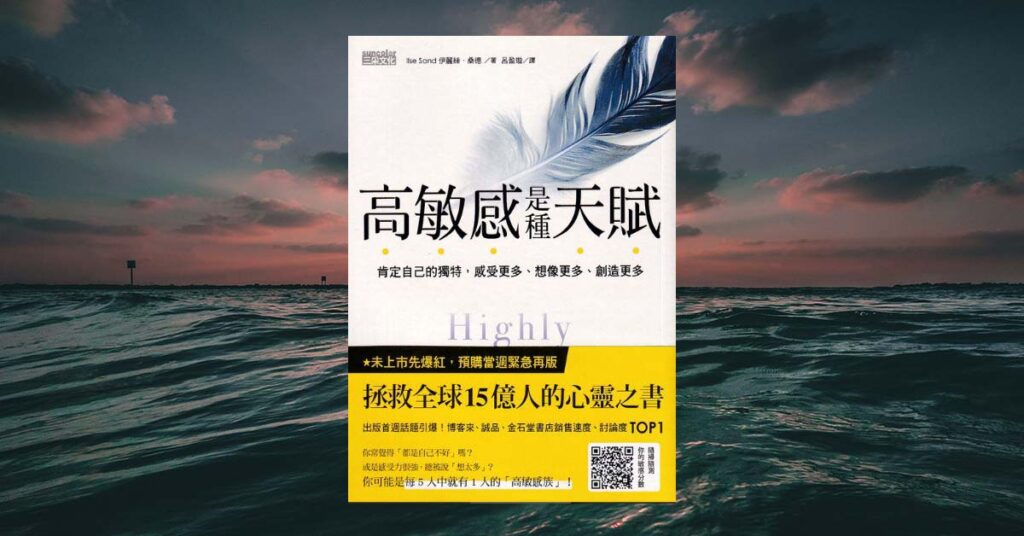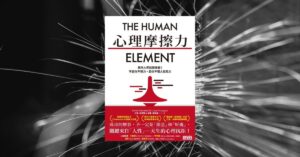Discovering Inner Strength
With the rise of social media, sharing has become the norm. People often showcase their daily lives, creating a culture where extroverted socialites seem more valued. If you are an introverted and sensitive person, you might feel out of sync with society's expectations. Should you stay true to yourself, or change to fit in? Highly Sensitive People in an Insensitive World offers answers to this dilemma.
Author Background and Insights
Highly Sensitive People in an Insensitive World is written by Danish psychotherapist Ilse Sand, herself a member of the Highly Sensitive People (HSP) community. She is acutely aware of the pressures that introverted personalities face in modern society. Combining her personal experiences with professional research, Sand provides practical insights and advice to help highly sensitive individuals understand and accept themselves, and learn how to turn their sensitivity into a source of strength.
Understanding High Sensitivity
High sensitivity refers to individuals who possess a heightened ability to perceive the world around them. These individuals often have rich imaginations and creativity, transforming their experiences into profound internal reflections. However, they are also more susceptible to overstimulation, leading to anxiety and stress. The strengths of highly sensitive people include keen insight and strong empathy, but they can also be prone to self-criticism and may be overly sensitive to changes in their environment.
The Prevalence of High Sensitivity
American psychologist Jerome Kagan conducted experiments on 500 four-month-old infants and found that one in five showed significant responses to environmental changes. For example, when a balloon popped or a new toy appeared, while other infants remained unfazed, the highly sensitive infants would react with distress, waving their limbs and crying.
Statistics suggest that about one in five people are highly sensitive. As children, they may cry easily due to external stimuli, and as they grow older, they exhibit different characteristics. Sand notes in her book, "Those who react strongly to external changes as children tend to have deeper reflections on life as they grow older."
Embracing and Utilizing High Sensitivity
The book emphasizes that high sensitivity is an innate trait that should not be forced to change. Instead, it should be embraced and utilized. By stopping the avoidance or suppression of this trait, we can better harness our potential.
Stop Trying to Change Yourself
Sand points out that highly sensitive individuals can perceive subtleties and absorb information deeply. They possess vivid imaginations, allowing them to create and depict things in detail. However, their minds work faster, causing their "memory space" to fill up more quickly than others, making them more prone to overstimulation.
In social settings, highly sensitive people can pick up on subtle cues and nuances in communication, but they can also feel overwhelmed by the sheer volume of external stimuli. I, myself, can endure social situations for one or two hours before feeling fatigued and seeking a quiet space. If I force myself to stay longer, the exhaustion becomes even more pronounced afterward.
Accepting this innate trait means acknowledging when you're tired and honestly telling others that you need a break. If you've already enjoyed the event, don't feel pressured to continue—it's okay to decline and allow yourself to be true to who you are.
Sand's encouragement left a lasting impression on me: "Stop trying to be the 'perfect' person that everyone expects you to be. Just be genuine, and you'll find that more new experiences await you. Even if others see your imperfections, they will still like you."
Lower Standards and Reduce Self-Criticism
The book highlights that highly sensitive people often set overly high standards for themselves, leading to a vicious cycle of self-criticism. Excessive demands only lead to exhaustion and disappointment. When they hear criticism, they tend to internalize it, creating inner dialogues and even harsher self-judgments.
Sand writes, "The stricter the standards you set for yourself, the more negatively it impacts your self-esteem. Overly demanding yourself will only lead to repeated disappointment and fatigue. Highly sensitive people are naturally prone to self-criticism, quickly falling into a vicious cycle."
Lowering your standards can help break this cycle. You can practice breaking your own rules. Even if you're not perfect, most people will still like you. Relaxing your expectations can make interactions more enjoyable. Before long, you'll find that people appreciate how comfortable they feel around you.
For example, at social gatherings, you might feel pressured to engage deeply with everyone, but this can be stressful. Lowering your standards to just having enjoyable conversations with a few people can make the event more pleasant. Similarly, when writing book reviews, instead of aiming to cover every point the author makes, focus on the parts that resonate with you and let go of the rest. There's no grading system—what matters is that you enjoy the process.
Calmly Handling Anger
I've always struggled with expressing anger, and this book helped me understand why.
Sand mentions that highly sensitive people are less likely to engage in arguments because they not only feel their own anger but also sense the emotions of others. This deep empathy, combined with a fear of hurting the other person, can lead to self-sacrifice. The intense emotions, mixed with guilt and shame, make it difficult to handle conflict. Some people fear hurting others, while others hesitate to compromise their values just to win an argument.
Sand observes that highly sensitive people tend to consider various possibilities, unwilling to compromise their values, which makes it hard for them to win in a short-term argument.
For example, if an argument is escalating, it's wise to agree to pause the discussion and set a time to revisit it later. Take a walk or go for a run to cool off. Sand advises highly sensitive couples, "As long as you can temporarily step away from the argument, you'll engage in self-reflection and eventually express your emotions more calmly."
For highly sensitive individuals, avoiding conflict is not always the best strategy. Taking time to cool down can help you approach the situation with clarity and use your strengths to your advantage.
High Sensitivity as a Gift
Highly Sensitive People in an Insensitive World taught me that high sensitivity is not a flaw but a gift. By understanding and accepting ourselves, highly sensitive individuals can turn this trait into a powerful advantage. We should all learn to appreciate this subtle quality and respect and cherish the highly sensitive people around us.
Whether or not you are highly sensitive, this book can change your perspective on sensitivity and help you appreciate this trait. Sensitivity is not a weakness; it adds richness to our character. Sand encourages us, "Since you have a unique trait, enjoy the opportunities that sensitivity brings." While highly sensitive people may excel in certain areas, they also face many challenges. Sensitivity cannot be cured or changed, and we need to give ourselves the care and rest that we need, perhaps more than others.
Accepting Yourself in Modern Society
In an era that values social interaction, introverted and highly sensitive people may feel discouraged. However, this isn't a personal failing but rather a difference in personality. Sand shares many personal experiences and cases, using a warm and understanding tone to help readers realize that they don't need to change their nature. Instead, they should embrace their uniqueness and find the strength to thrive.
It's important to note that no one fits perfectly into any one category. Every individual is unique, and personality traits are far more complex than any type can define. Being highly sensitive is not a defect; it allows you to have a richer inner world and a unique understanding of the world around you.
Practical Methods and Advice
The book offers three specific methods to help highly sensitive people better cope with the challenges of life:
Method 1: Spend 5 Minutes a Day Clearing Your Mind
Take a few minutes each day to clear your mind, giving yourself enough space to process your emotions. For example, find a comfortable position, close your eyes, and focus on your breathing and the rhythm of your body. This helps you shift your focus from external stimuli to your inner self, avoiding overstimulation.
Method 2: Don't Hide Your Feelings
Learn to express your feelings authentically without forcing yourself to conform to others' expectations. When you feel uncomfortable, prioritize addressing your emotions and maintaining a connection with your inner self by staying true to your thoughts.
Method 3: Express "Dissent"
Be brave in expressing your opinions, and don't suppress yourself just to fit in. These differences make you unique and valuable. Expressing your feelings and values can help you build closer connections with others and inspire more meaningful interactions.
Conclusion
Highly Sensitive People in an Insensitive World teaches us that high sensitivity is not a flaw but a gift. By understanding and accepting ourselves, we can turn this trait into a powerful advantage. Regardless of your personality type, you should embrace and cherish your uniqueness. Every personality has its charm, and when we accept our differences, we can find our place in society and live a life full of fulfillment.







